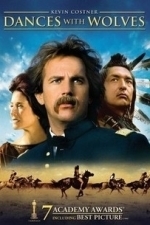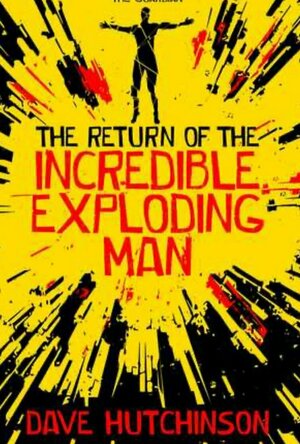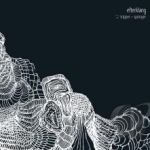Search
Search results
David McK (3692 KP) rated Dances With Wolves (1990) in Movies
Mar 14, 2021
The music (1 more)
The cinematography
John Dunbar ... Dances with Wolves
Kevin Costner's epic Western, in which the man himself stars as Civil War veteran John Dunbar who, after an act of attempted suicide charging the enemy lines on his own, is offered his choice of posting and chooses to go to the American Frontier (before it disappears).
Once he gets there, he is posted to an abandoned fort, with everyone who had knowledge of this posting then (for plot reasons) getting killed off.
Initially left on his own, he soon encounters a nearby tribe of Sioux Indians and, as the film progresses, finds himself drawn more and more to their way of life, eventually earning the name 'Dances with Wolves' before the inevitable happens and the US army starts making their way into Sioux territory.
Unusual (for it's time) in that this film is largely sympathetic to the Native Americans plight, with some stunning cinematography, beautiful music and some stellar acting but, holy moly, boy is this one long film: even the 'standard' version is roughly 3 hours long!
Once he gets there, he is posted to an abandoned fort, with everyone who had knowledge of this posting then (for plot reasons) getting killed off.
Initially left on his own, he soon encounters a nearby tribe of Sioux Indians and, as the film progresses, finds himself drawn more and more to their way of life, eventually earning the name 'Dances with Wolves' before the inevitable happens and the US army starts making their way into Sioux territory.
Unusual (for it's time) in that this film is largely sympathetic to the Native Americans plight, with some stunning cinematography, beautiful music and some stellar acting but, holy moly, boy is this one long film: even the 'standard' version is roughly 3 hours long!
Neil Tennant recommended Cabaret (1972) in Movies (curated)
ClareR (6062 KP) rated The Incredible Exploding Man in Books
Aug 29, 2023
Alex Dolan is hired by a multimillionaire to write a book about the Sioux Crossing Supercollider. A dream job for a man who has been struggling for work. When he gets there though, people aren’t as keen as he thinks they will be to divulge any information for him to write his book.
About 4/5 of this book is the build up to what actually happens. Don’t get me wrong, I really enjoyed this larger part. It’s really funny and the character building is excellent. But it did leave me thinking what on Earth the title had to do with the book I was reading. I stuck with it though, and I’m glad I did.
I enjoyed the meandering scene setting, and it does pay off. The last 1/5L the real business of the book was equally as good. I just wish there had been more of it, and I wish that all the characters I’d learnt so much about hadn’t just disappeared. I mean, not literally disappeared. At least it don’t think so…
I really liked the narrative voice in this book, so I think I’m going to go and look for more of Hutchinson’s books. I hear The Fractured Earth series is supposed to be good…
About 4/5 of this book is the build up to what actually happens. Don’t get me wrong, I really enjoyed this larger part. It’s really funny and the character building is excellent. But it did leave me thinking what on Earth the title had to do with the book I was reading. I stuck with it though, and I’m glad I did.
I enjoyed the meandering scene setting, and it does pay off. The last 1/5L the real business of the book was equally as good. I just wish there had been more of it, and I wish that all the characters I’d learnt so much about hadn’t just disappeared. I mean, not literally disappeared. At least it don’t think so…
I really liked the narrative voice in this book, so I think I’m going to go and look for more of Hutchinson’s books. I hear The Fractured Earth series is supposed to be good…
Karl Hyde recommended Tripper/Springer by Efterklang in Music (curated)
The Failure of the southern column to continue to advance north after the battle of Rosebud set the stage for the annihilation of George Armstrong Custer and his five companies of the 7th Calvary at the Little Big Horn. For nearly 150 years everything possible has been written except the true causes and culprits of the bloody fiasco at the Little Big Horn on June 25, 1876, that shocked the American nation like no other post-Civil War event. Dr. Tucker has relied primarily on source material to expose those individuals American's leading military and civilian officials, who were most responsible for the greatest military disaster. Revealing the Machiavellian currents, dark threads that had artificially manufactured against the Sioux by America's top leaders, including the president, to gain their territory of the Black Hills. He provides with a new understanding of why Custer died on that mountaintop with his most faithful followers. This book brings the reader closer to understanding exactly what occurred on that fateful day that left one man standing and the rest 7th Calvary and Custer dead in the dirt. This book does cover some of the previous books written but you can tell that Dr. Tucker took the time to research further not completely satisfied with the consciences the previous researchers on the Little Big Horn or the life of Custer. I highly recommend this book to anyone who is interested in post-civil war history, military history or Custer. The overall view was quite refreshing in the fact it covers how much was honestly lost that day not just the dead of those men.





